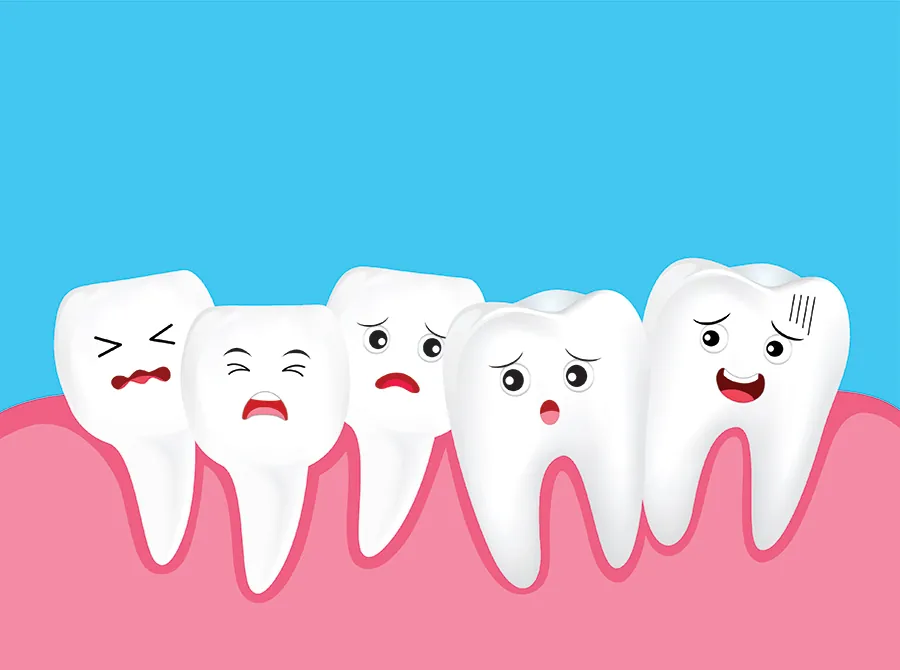
Effects of Thumb Sucking on Teeth and What Parents Need to Know
If you’re like most parents, you worry about everything from when your child will start walking and potty training to how thumb sucking beyond a certain age will impact their dental health. But rest assured, thumb-sucking is a natural instinct for many children.
Most outgrow it before it becomes problematic. But just in case you’re still concerned, read on to learn why kids suck their thumbs, what happens to teeth after sucking thumbs for an extended period, and great tips to encourage them to stop.
Why Do Children Suck Their Thumbs?
Did you know some ultrasounds have shown babies sucking their thumbs in the womb? To say this is an instinct would be putting it mildly. Babies often suck thumbs as a way to relax or self-soothe, as it mimics the suckling motion during breastfeeding.
Thumb sucking is a natural reflex for comfort and self-soothing. When babies nurse or take a bottle, it’s more than just eating for them. This is a time when they can bond with the people that make them feel safe.
As a result, sucking a thumb or finger can become a coping mechanism as children age. As they grow, they’ll find the same sensation as they did when they nursed or took a bottle when they were little. This isn’t a bad thing!
After all, we want our children to feel safe, grow to be independent, and find ways to relax and self-soothe. So sometimes when a child finds themselves in a stressful situation, the go-to way to manage those big feelings is through thumb sucking.
That said, while it’s important for our children to soothe, thumb-sucking has a negative effect on your child’s permanent teeth.
When Should Children Stop Sucking Their Thumbs?
Most children stop sucking their thumbs either in infancy (6-9 months) or toddlerhood (2-4 years.)
There is some conflicting and confusing information as to when babies and children should stop to prevent issues with teeth and jaw development. Some may say not to worry until permanent teeth are coming in, whereas others suggest putting a stop to it before kindergarten.
The problem is that every child develops differently. So while some kids begin losing teeth as early as 5 (or even 4!), other children don’t lose their first tooth until they are 8.
This is why thumb-sucking can have such a negative effect on their teeth. A thumb sucker’s jaw and teeth can start to shift even before they lose their first teeth.
In order to minimize and prevent oral issues, The Super Dentists encourage your child to stop vigorous or constant thumb sucking between ages 4. This will also give you time to use gradual and positive steps to wean them rather than racing against the clock as the first adult teeth erupt.
Long-Term Impact of Thumb Sucking on Teeth and Jaws
So why does it matter if your Super Kid sucks their thumb? As noted, it can actually have a large and lasting impact on the development of their teeth and jaws and beyond.
But keep one thing in mind – how often and how hard they suck their thumb is a big factor. If your child lightly sucks their thumb unconsciously at night, it’s probably not a big deal. However, if they are forcefully sucking constantly or even doing it during the daytime hours, it can impact your child’s mouth.
The long-term effects of thumb sucking on teeth may include:
- Misaligned bite. This can be an overbite, overjet, open bite, or crossbite. Essentially, the upper and lower teeth don’t line up properly. This can lead to worn enamel or cracked or broken teeth, as well as other issues.
- Palate issues. This refers to the roof of their mouths. The palate may become misshapen or overly sensitive. This could even contribute to sleep apnea later in life.
- Change to the jaw shape.
- Speech issues. Incorrect shaping and formation of the jaws, teeth and palate can lead to speech impediments such as lisps. In some cases, even speech therapy cannot undo or fix the speech issues caused by malformation of the mouth.
Potential Thumb Sucking Damage
This cute little habit in your snuggly newborn becomes a lot less cute when it starts affecting your child’s ability to properly chew or speak.
It can become very costly very quickly. Add up the cost of repairing, pulling or replacing cracked or broken teeth, getting kids braces to correct jaw and teeth alignment issues, headgear or palate spacers, or even surgery to correct severe oral issues and you’re looking at a large sum of money.
But even beyond the financial burden of thumb-sucking is the social cost. Let’s face it, people can be unkind. A child still sucking their thumb at school is more prone to being made fun of.
Even as adults, speech impediments can get you teased. Stopping thumb-sucking can allow the wonder and beauty of your child to shine through while also minimizing the societal challenges they face.
Preventing the Negative Effects of Thumb Sucking on Teeth
So how can you get your child to break the thumb-sucking habit before it becomes problematic? The Super Dentists are happy to provide some fun, positive, and effective ways to reduce thumb sucking.
- Praise or Reward your child for not sucking their thumb. You know your kid best. If saying something at the moment makes them feel seen and proud of their efforts, acknowledge it. If they thrive on physical rewards like stickers on a chart, use them.
- Plan a Special Outing if your child is suck-free for a certain number of days.
- Shoot for a Time Restriction such as no sucking the thumb an hour before bedtime. Little, attainable goals can lead to longer, sustainable periods without thumb-sucking.
- Distract your child when they start thumb-sucking with different activities or soothing options such as a stuffed animal or a comforting blanket.
- Create a safe place within the home to reduce stress.
- Recognize triggers to your child’s thumb sucking and work to reduce the triggers or develop safe alternatives.
- Gently remind them to stop sucking their thumb whenever you notice it.
- Try to gradually reduce the amount of thumb-sucking your child does. Focus on time periods of the day when you notice the thumb sucking becomes its worst.
Remember that it’s most important to be patient with a child that is sucking their thumb. They’re not worried about the negative effects, that’s your job. Do not scare them with the consequences and instead, try to understand why your child feels the need to suck their thumb.
Provide positive reinforcements whenever possible. Remember that young children typically respond better to rewards than consequences.
Finally, if all else fails, Bring your child to The Super Dentists! Older children may be more open and understanding to the information about the potential issues of thumb-sucking from professionals. And a trip to The Super Dentists is always a good time! Call (855) GO SUPER to schedule an appointment.
About the Super Dentists
The Super Dentists are San Diego’s largest and most trusted Pediatric Dentist, Orthodontic, and Parent Dentistry practice. We create the most unique and out-of-this-world dental experience for children and their parents. We are the only dental practice where kids ask, and even beg, their parents to take them to the dentist – imagine that!
We offer the newest technologies for the most comfortable, safe, and effective dental treatments. The Super Dentists accept most insurance, including Medi-Cal, and are available on the weekends and for emergencies.
With 6 locations throughout San Diego and growing, the practice gives back to our communities whenever possible by hosting free quarterly events, and complimentary dental care to those in need.
If you’re concerned that your child’s thumb sucking is having a negative impact on their oral health, schedule an appointment today!









